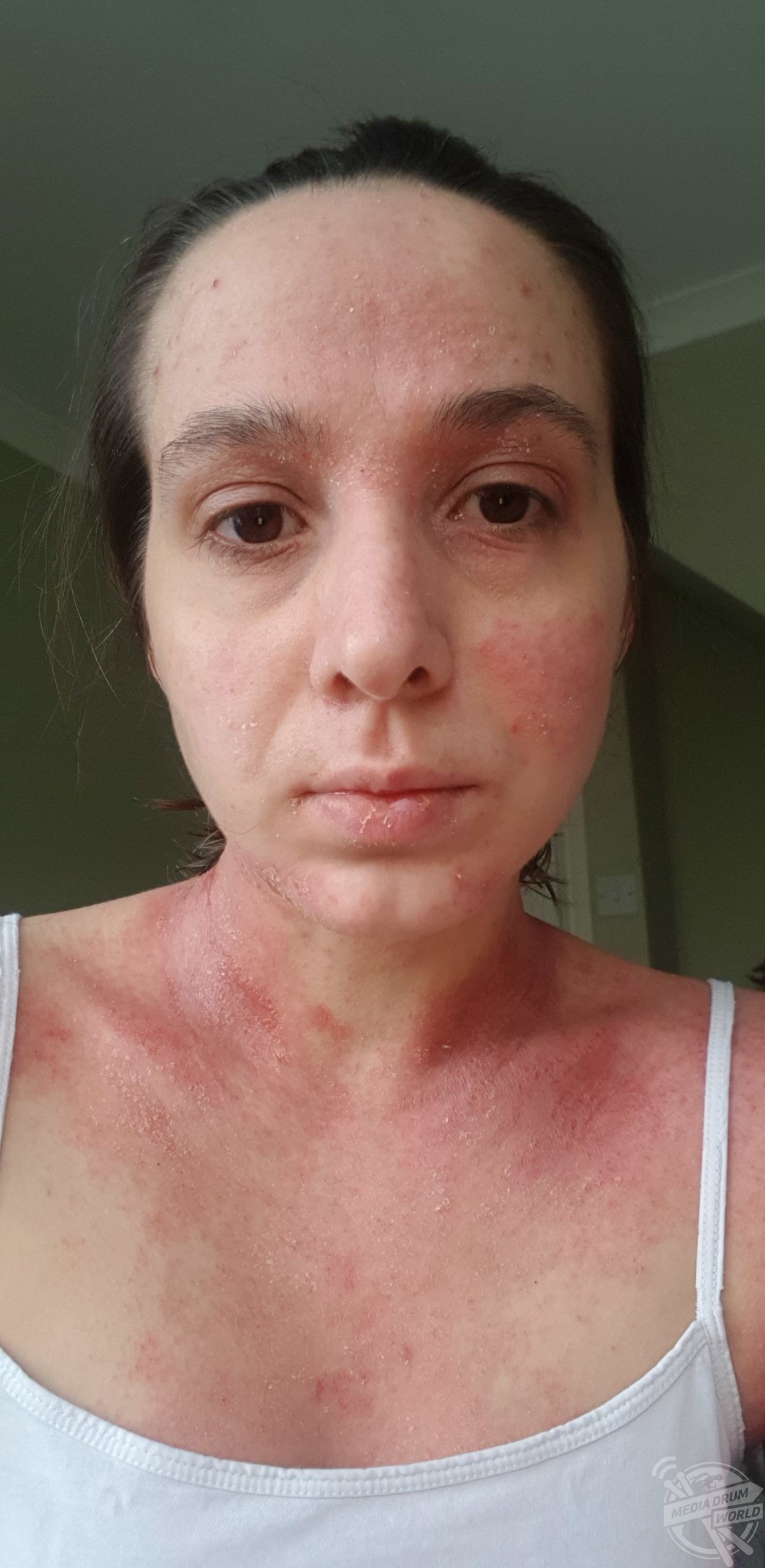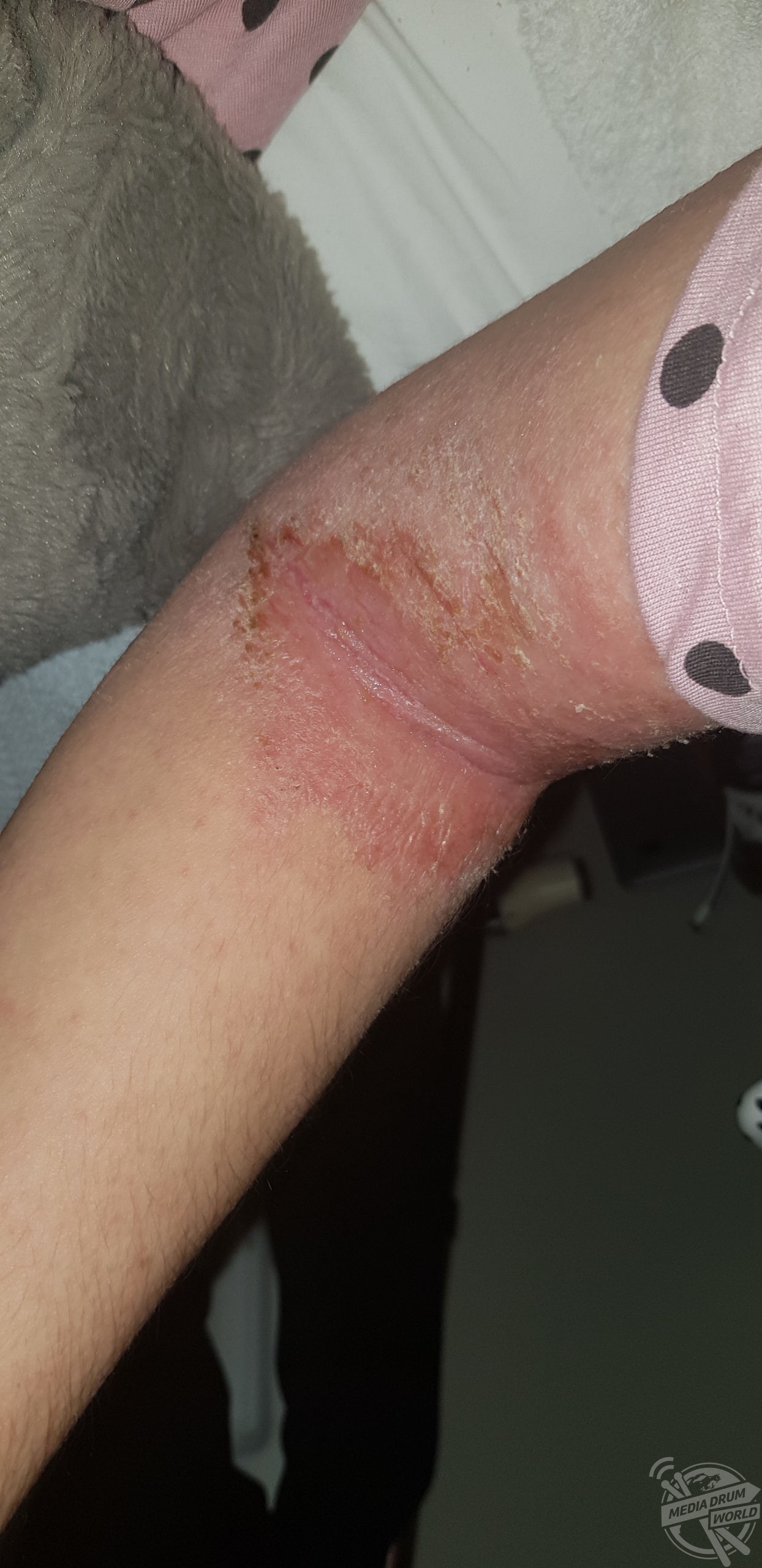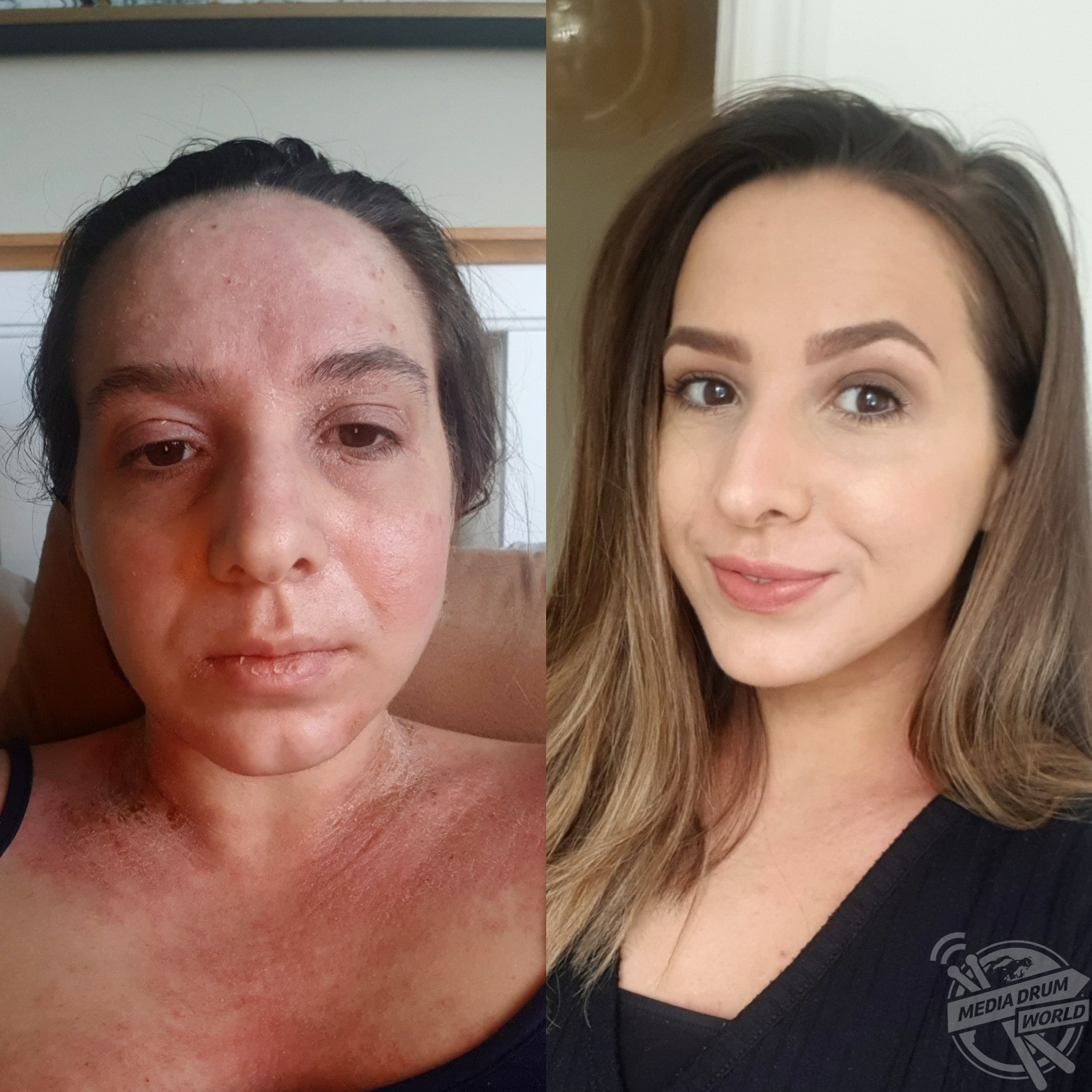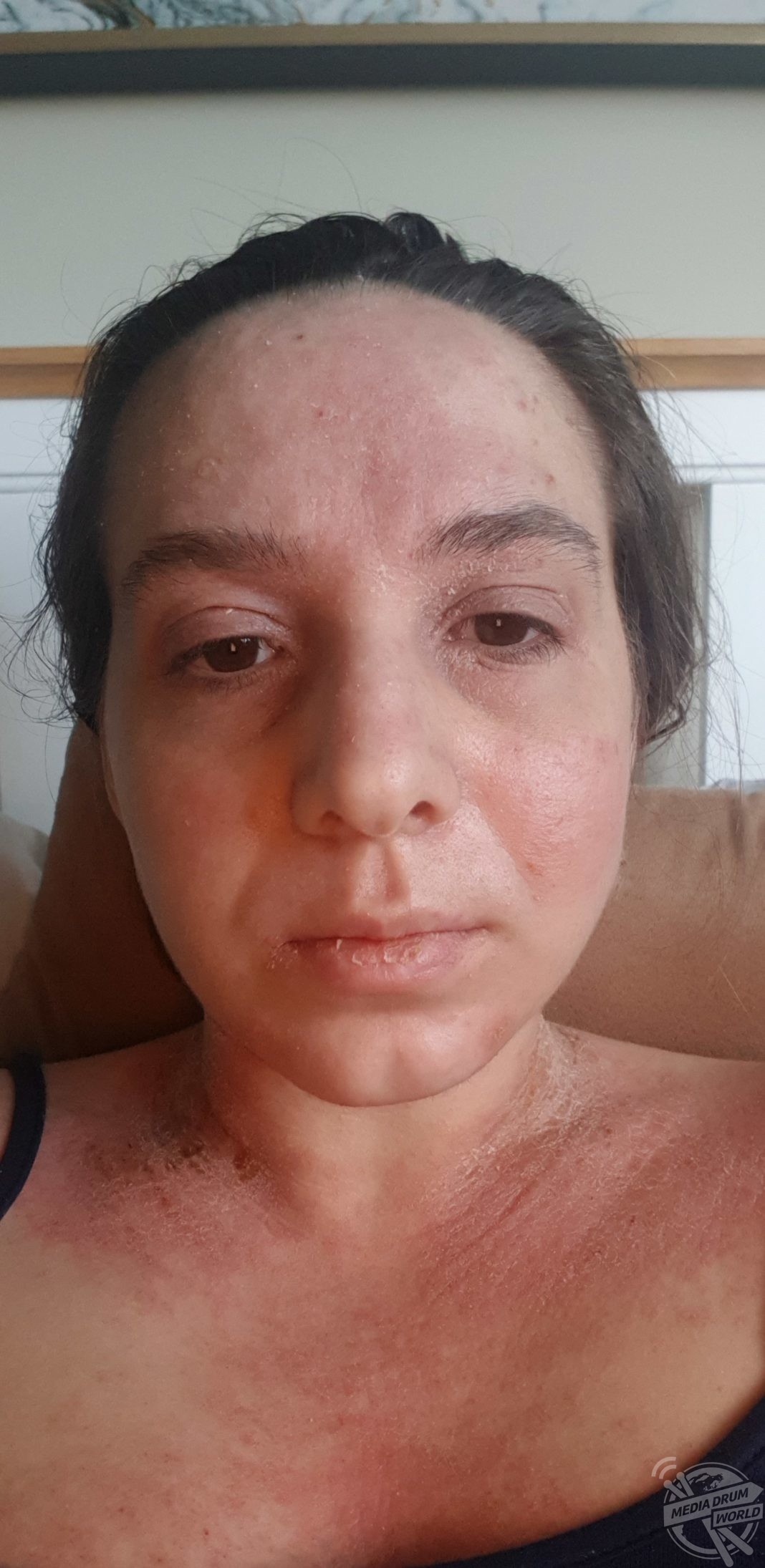By Kate Harrold
THIS WOMAN’S eczema became so serious that she had to use a wheelchair and couldn’t leave the house for FOUR-MONTHS.
Brand account manager, Thalia Daw (27), from Marlborough, UK, was diagnosed with eczema when she was five-years-old. Thalia would experience dry patches of skin around her elbows and knees. However, in 2018 the condition worsened.
Shortly after moving into a thatched cottage, Thalia’s eczema flared up and she was prescribed some mild steroids. When these didn’t work, a dermatologist prescribed Thalia with the topical steroids, Betnovate and Dermovate, as well as an immunosuppressant called Protopic.

Thalia’s skin rejected the steroids – causing a rash and burning sensation to spread across her body. After 18-months, Thalia quit using the steroids but was soon after left in a debilitating state of withdrawal.
For four months, Thalia shut herself away from the world as topical steroid withdrawal left her unable to walk unassisted – requiring a walking stick to help her do so. Other symptoms included blistered skin, insomnia, nerve damage, hair loss, and depression.
“Topical steroid withdrawal greatly affected my social life for four months. I couldn’t go anywhere and I didn’t want anyone to see me. I shut myself away during that time,” Thalia said.

“The recovery process took a long time and I’m still healing now. After two months, I quit using any form of moisturiser. I stopped showering and limited my water intake to one-litre a day. This all helped speed up the process but time was the key factor.
“I had to borrow my boyfriend’s mum’s wheelchair to get some fresh air outside because my legs were so raw and blistered that I couldn’t bend them fully to walk.
“I used the walking stick daily for a month until I regained my strength.

“My family and boyfriend have been an incredible support system through it all. I’m much healthier now but there are still days when I don’t want to get out of bed.
“It’s left me with anxiety and post-traumatic stress disorder. Saying that, I feel more confident now and I don’t shy away from life. I’m excited for the future.”
Spreading awareness online is important to Thalia who hopes to join others who have suffered from topical steroid withdrawal in raising the alarm on just how dangerous these widely prescribed medications can be.

“I went to the doctors numerous times. They just kept trying to prescribe me more steroids,” Thalia said.
“You’re made to feel stupid for explaining how you’ve self-diagnosed yourself with topical steroid withdrawal. In one appointment I broke down crying because of how dismissive the doctor was.
“I’ve never been offered any kind of help for the effects it’s had on my mental health.

“In small doses and for minimal amounts of time, these steroids can work for minor skin conditions but we need to stop over prescribing them on repeat prescriptions.
“There needs to be clear advice on where you can use it on your body and for how long. There are not enough studies into these side effects.

“If you’re experiencing topical steroid withdrawal, you are so incredibly strong. Healing happens and the journey is worth it. There are certainly dark days but the light does come.
“To anyone using topical steroid creams, please be careful and do your research. This illness is debilitating yet so completely preventable.”






